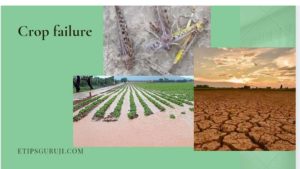Kisan Bill 2020: An Agreement on Price Assurance And Farm Services
Kisan Bill 2020 will provide a national framework on agreements related to farming practices. It will empower farmers and people involved in agriculture.
Kisan Bill 2020 is the replacement of the “Farmers Agreement of Price Assurance and Farm Services Ordinance” and it is solely meant to empower and protect the farmers and people involved in farming practices. The key features of the bill include trading of the farmer’s produce, electronic trading, and the abolition of market fees.
The aim of Kisan Bill 2020 is to provide a national framework on agreements related to farming practices. It will be beneficial to Farmers engaged in practices like Agri-business firms, wholesalers, exporters, processors, or large retailers. Continue reading to find out more about Kisan Bill 2020.
The State Agriculture Produce Marketing Committee (APMC)
The state Agriculture Produce Marketing Committee (APMC) laws regulate the Indian agricultural market. APMC ensures a fair trade between buyers and sellers with transparency.
APMC can use licensing to regulate the farmer’s produce and can levy a market fee or charges on trades and provide necessary infrastructure within the markets.
It was in 2018-19 when the Standing Committee on agriculture observed the laws are not being implemented fairly. The Committee identified issues like a limited number of traders operating in APMC leading to cartelization and low competition. There were undue deductions in the name of commission and market fees.
In July 2019, a committee of seven Chief members discussed and realized a need for time-bound implementation of model Acts by states. Also, some changes were required in the Essential Commodity Act, 1995 to attract private investors in the agriculture market.
A General Introduction to Kisan Bill 2020
Since Kisan Bill 2020 is the replacement of the Farmers agreement of Price Assurance and Farm Services, let’s see the highlights of the ordinance.
- Under the Promotion and Facilitation Ordinance 2020, intra-state and inter-state trade of farmer’s produce is allowed beyond the APMC markets. The state governments are not allowed to leverage any market fee or cess.
- An agreement between the farmer and a buyer before any farm produce. The conciliation board, Sub Divisional Magistrate, and Appellate authority will provide a three-level dispute settlement mechanism to both the parties.
- The central government will be able to regulate the supply of some food items under unusual conditions like war or famine. Moreover, stock limits can be imposed in case of a steep price rise only.
On 5 June 2020, the central government passed three ordinances including Essential Commodities Ordinance, 2020.
The other two are- the Farmer’s Produce Trade and Commerce Ordinance 2020 followed by the Farmers Agreement on Price Assurance and Farm Services Ordinance, 2020.
Farming Agreement in Kisan Bill 2020
The written farming agreement for any farming produce provides certain terms and conditions including the quality, standards price, and the time of supply. Also, there will be terms related to the supply of farm services.
There will a minimum period of the agreement that is one crop season or one production cycle of livestock with a maximum limit of five years. For share-cropper also, there are certain conditions.
The Central Government can issue required guidelines to facilitate farmers in entering into the written farming agreements. There can be model farming agreements too.
Both the parties will be able to identify and require a condition mutually related to the grade, quality, and standards of the produce. The conditions may vary according to the agronomics practices and climate. Any agency of the State Government or the Central Government or the agency authorized by them will be able to formulate the quality, grade, and standards.
Food safety standards, farming practices, pesticide residue, labor, and social developments may be adopted in the farming agreement.
The condition agreed by both the parties shall be monitored by the third party qualified assayers and during the processes like cultivation or time of delivery. This step is crucial to ensure impartiality and fairness.
Terms Related to Price and Payment
For purchasing the farming produce, the price will be mentioned in the farming agreement. A guaranteed price may be there for farm-produces with a variation.
A clear price reference may be provided for any additional charge over the guaranteed price. An additional amount over the guaranteed price can be in the form of a bonus or premium. It ensures maximum profit to the farmer.
The price reference can be linked to the market price in a particular APMC yard or any suitable benchmark prices. The method to determine a guaranteed price or additional price will be annexed to the farming agreement.
What the Kisan Bill 2020 Says about the Delivery of Farm-Produce
The farming produce is to be taken by the sponsor at the farm gate within the agreed period. The sponsor will be responsible to ensure the preparations for accepting the delivery on time.
The sponsor can check the quality and other things as mentioned in the agreement before accepting the delivery. Otherwise, it will be considered inspected by the sponsor and he shall have no right to retract from acceptance.
For seed-related production, the sponsor shall make payment of not less than two-thirds of the agreed amount at delivery. The remaining amount can be paid after certification and within three days of delivery.
After accepting delivery and paying the amount, a detailed receipt has to be issued. The mode and manner of payment may be prescribed by the State Government.
Exemptions Concerning Farming produce
Any farming produce which is entered under this Act will be exempted from the application of any State Act related to the regulation of sale and purchase. The Kisan Bill 2020 also states that any obligation related to limiting the stock will not apply to quantities of farming produce purchased under the agreement.
Prohibiting Sponsors from Acquiring Ownership Rights
According to the agreement, sponsors are prohibited from acquiring ownership rights. Also, they cannot make any permanent modifications to the farmer’s land. The Kisan Bill 2020, says that no farming agreement shall fulfill the purpose of transfer, sale, mortgage, or lease of the farmer’s land.
No farming agreement is allowed to modify the land or raise any permanent structure on the farmer’s premises. But the Sponsor may agree to remove the structure or restore the land as before at his cost on the expiry of the agreement period. If the structure is not removed as agreed, its ownership shall vest with the farmer after the expiry of the agreement.
Linking Farming Agreement with Insurance or Credit
Insurance is an important step to save both parties in case of crop failure or other kinds of losses. The farming agreement can simply be linked with insurance or credit instrument. it can be any scheme of the Central Government or the State Government as well as any financial service provider. Linking the agreement with such schemes will ensure risk mitigation and flow of credit to both.

Dispute Settlement through Conciliation Board
Having disputes in such deals is a common thing. Therefore, a provision should be there for the settlement. The farming agreement will have to explicitly provide for a conciliation process. The conciliation board will have fair and balanced representatives of the parties to the agreement.
In case of any dispute, the conciliation board will look after it to bring about a settlement. A memorandum of the settlement will also be drawn that has to be signed by the parties.
Other Important Points of the Kisan Bill 2020
- The Central Government may give directions to the State Governments whenever necessary. It will ensure the effective implementation of the provisions of the Act.
- Under section 21 of the Indian Penal Code, Authorities prescribed under the Act including Registration Authority, Sub-divisional Authority, and Appellate Authority shall be deemed to be public servants.
- For the protection of action taken in good faith, no suit, prosecution or any legal proceeding will lie against the Central Government, the State Government, the Registration Authority, the Appellate Authority, the Sub-Divisional Authority.
- Any civil court shall have no jurisdiction to entertain any suit or proceedings for any dispute empowered by the Sub-Divisional Authority or the Appellate Authority.
- Acts like Act to have an overriding effect and Act not to apply to the stock exchange and clearing corporations are also there.
- To ensure a smooth flow of services, the State Government, as well as the Central Government, may make rules (by notification in the Official Gazette).
- The Central Government has the power to remove difficulties: In case of any difficulty arising in giving effect to the provisions of the Act, the Central Government can interfere to resolve it.
The agriculture sector has suffered a lot due to the COVID-19 pandemic. The challenges to the livelihood of farmers need the support of the government. Any effect on agriculture has a direct impact on the economic growth of the country. Therefore, long term solutions are crucial to improve the condition of farmers.
At present, Kisan Bill 2020 is facing objections from some states and groups of farmers. Once the government and people agree to common terms, the Act will prove to be beneficial to everyone involved in agricultural practices.






